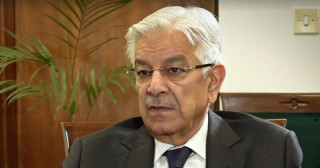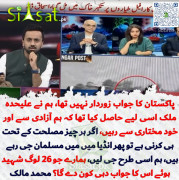
http://blogs.thenews.com.pk/blogs/2012/01/31/understanding-inflation-%E2%80%93-our-core-problem/
Understanding Inflation – Our Core Problem
One Rupee was all I wanted for lunch at school during my early school days, enough to buy me one bag-a-chips, and three Rupees for Thursdays to enjoy Pepsi. This was about two decades ago. Today a bag of chips cost Rs7 and Pepsi Rs20. So what happened? Am I getting 7 times the amount of Chips or Pepsi? Or is it my money worth less? This one’s pretty easy to answer after enjoying Pepsi. If I had saved those Rs3 from 20 years ago, it would have lost 86% of its value today. So how did this happen? How did the value of my Rs3 erode away as time went by? Where did the purchase powergo? To answer this, we will have to understand Money and the role of Central Banks.
Money is a medium for markets to unitize goods and labor. It is a pricing-mechanism to signal abundance or scarcity of certain goods or labor available in the market. If this abstract idea is understood correctly, no government or economist can fool you. The value of the whole money- supply reflects the goods and labor (and its potential future growth) in that economy. More notes added into circulation do not add to value of money as a whole. In fact it does just the opposite. The existing note loses value as value is shifted from the old notes to new ones. This is key to understanding today’s Economic scam. Universities call it Keynesian Economics. The newly issued notes resets the pricing mechanism in the market. Commerce slows down till the pricing adjusts to accommodate the newly added notes. Inflation encourages hoarding which results in food-shortages, and discourages savings which is the soul of Economic growth. Run away from an economist who says Consumption is the path to Economic growth. Production is! The more a country produces, the more there will be good to go around. Increased production increases the value of money and reduces poverty. In principle, if the amount of money were to be left unchanged, value of money would continue to rise and things would start to get cheaper.
15 years ago, computers were pricey. Then companies found cheaper ways to make them, economies of scale and now we have affordable computers. Other examples are Mobile phones, DVD players. This didnt happened with food prices or electric rates, or transportation cost. They blew through the roof, let alone remain stable. So what happened?
Thats where the role of Central Banks come in. Pakistan’s Central Bank is State Bank of Pakistan. Every time a new Federal Government budget is released, it’s unbalanced i.e. Federal Government is spending more than it is collecting. So where is it getting the rest of the money? Thin air. And the Govt has lots of thin air. The State Bank prints that money out and hands it over to the Federal Govt. This reduces the value of the money you and I hold. The more the bank prints, the more we loose.
So why dont we ask the Government to simply balance the budget? Afterall, every household in Pakistan has to live within its budget. You see every time your government offers you something free, run away! If people only knew how expensive government provided free stuff is, they would never buy those arguments. Governments also play tricks of divide and rule. Governments pander to minority groups and play the ‘prisoner’s dilemma’. The collapse of moral standards guaranties a failed generation for future. Look around and you will witness it. Thank Bhutto’s socialist policies.
Govt needs to eliminate all sorts of subsidies. Subsidies create structural deficits in the Economies, encourages uneconomic behavior. Remember, nothing is free. There is always a cost for everything. Sure Pakistan is a Social Welfare State, but welfare comes from budget savings, not from budget deficits, just like there is no ZAKAT on borrowed money.
Money is a medium for markets to unitize goods and labor. It is a pricing-mechanism to signal abundance or scarcity of certain goods or labor available in the market. If this abstract idea is understood correctly, no government or economist can fool you. The value of the whole money- supply reflects the goods and labor (and its potential future growth) in that economy. More notes added into circulation do not add to value of money as a whole. In fact it does just the opposite. The existing note loses value as value is shifted from the old notes to new ones. This is key to understanding today’s Economic scam. Universities call it Keynesian Economics. The newly issued notes resets the pricing mechanism in the market. Commerce slows down till the pricing adjusts to accommodate the newly added notes. Inflation encourages hoarding which results in food-shortages, and discourages savings which is the soul of Economic growth. Run away from an economist who says Consumption is the path to Economic growth. Production is! The more a country produces, the more there will be good to go around. Increased production increases the value of money and reduces poverty. In principle, if the amount of money were to be left unchanged, value of money would continue to rise and things would start to get cheaper.
15 years ago, computers were pricey. Then companies found cheaper ways to make them, economies of scale and now we have affordable computers. Other examples are Mobile phones, DVD players. This didnt happened with food prices or electric rates, or transportation cost. They blew through the roof, let alone remain stable. So what happened?
Thats where the role of Central Banks come in. Pakistan’s Central Bank is State Bank of Pakistan. Every time a new Federal Government budget is released, it’s unbalanced i.e. Federal Government is spending more than it is collecting. So where is it getting the rest of the money? Thin air. And the Govt has lots of thin air. The State Bank prints that money out and hands it over to the Federal Govt. This reduces the value of the money you and I hold. The more the bank prints, the more we loose.
So why dont we ask the Government to simply balance the budget? Afterall, every household in Pakistan has to live within its budget. You see every time your government offers you something free, run away! If people only knew how expensive government provided free stuff is, they would never buy those arguments. Governments also play tricks of divide and rule. Governments pander to minority groups and play the ‘prisoner’s dilemma’. The collapse of moral standards guaranties a failed generation for future. Look around and you will witness it. Thank Bhutto’s socialist policies.
Govt needs to eliminate all sorts of subsidies. Subsidies create structural deficits in the Economies, encourages uneconomic behavior. Remember, nothing is free. There is always a cost for everything. Sure Pakistan is a Social Welfare State, but welfare comes from budget savings, not from budget deficits, just like there is no ZAKAT on borrowed money.
Last edited:

































